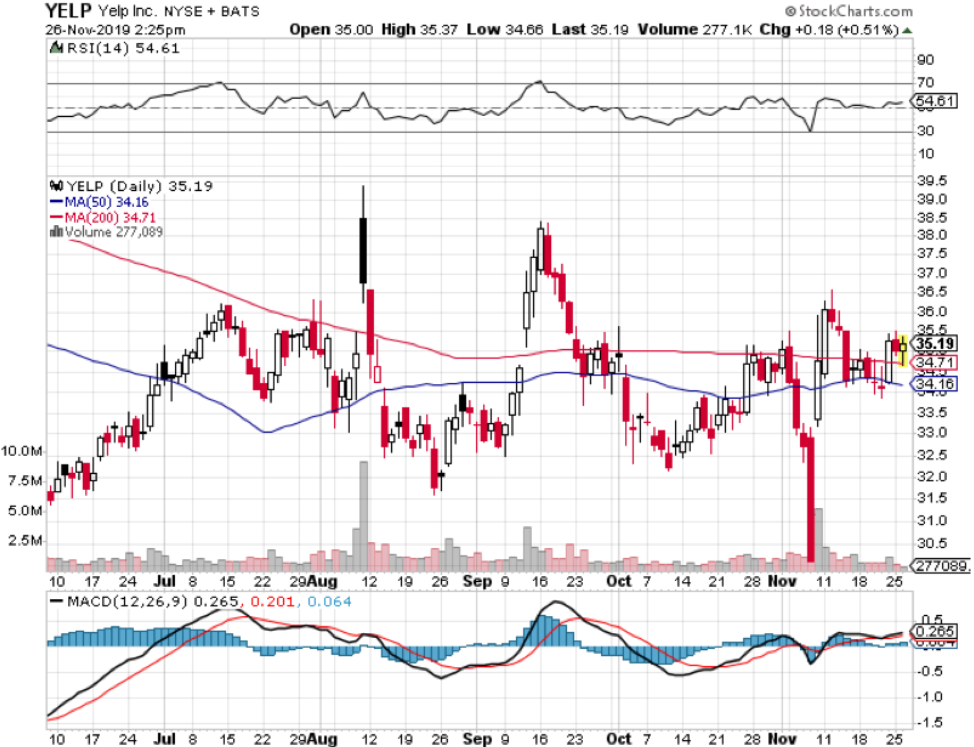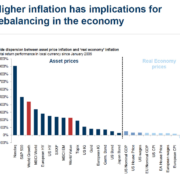The Sad Truth About Digital Marketing
Granted that technology companies have been the mule carrying the load for the broader market, beneath it is an ugly underbelly of venomous spirits.
Digital tech companies are frauds.
This could crater the broader market if the worst-case scenarios play out.
What do I mean by labeling them frauds?
Well, first, not all tech companies are charlatans. The ones producing components like semiconductor companies and others creating hardware are not the target of my wrath.
Since content has migrated into an all-out assault on traditional media, there is a dirty little secret that is festering because the new online media isn’t regulated.
The numbers are all a lie.
Much of the analytics and calculus involved with crafting cost to the other side is being entirely gamed by tech companies quoting prices based on fake analytics.
Instagram switched over its algorithm to displaying photos chronologically, to now display posts that engage the most, more specifically, what gets clicked the most.
Consumers have complained about it being significantly harder to gain likes and followers because, for the ones that don’t have many clicks, it’s harder to get those added clicks if your post is relegated down the feed.
The platform has also been a breeding ground for fabricating likes, friends, views, clicks and so on. Companies can be hired per like, resulting in a beefed-up profile built on fantasy.
Ad companies gauge each Instagram profile by the amount of engagement generated and if most of them are fraudulent likes, there will be weak follow-through in sales after ad purchases since a good chunk of the potential audience is a mirage.
Instagram is the preferred social platform of most influencers and Facebook is attempting to merge both assets into one in order to claim to regulators that they can’t be separated.
Much of digital marketing has migrated down the path of growing a large following for the reason to qualify as an effective brand ambassador and siphon off influencer marketing budgets from corporates who desperately want to penetrate a target audience.
In an age of automated robocalls and strict email rules, companies hesitantly confess that the only way to reach their end buyer is through social media channels.
Corporates are wasting billions of dollars because they aren’t getting what they really pay for and are basically being fleeced by tech companies.
And if you think this is mutually exclusive to Facebook (FB) and Instagram, it happens in every tech company that involves data.
Tech companies are monetarily incentivized to flat out lie about their data, partially because the penalties are minimal or absent in many cases.
Marginal tactics to fast-track the process by buying likes should be rooted out of the eco-system.
They are not only hurting the trust users have with the platform, but misrepresenting the brand that associates with a product.
Tech firms ward off anyone and everything from taking a peek at internal data by claiming it is their proprietary IP causing them to effectively police themselves.
That is not even the worst part of it all.
Parent company Facebook is turning a blind eye to something that could crash the company.
Mark Zuckerberg's old classmate Aaron Greenspan published a report complaining that over 50% of Facebook accounts are fake.
Facebook is on record admitting that between 2-3% of accounts are fake, but that number is a dream and artificially low by a country mile.
If it is true that half of Facebook accounts are fake, this would mean that Facebook sits on over 1 billion fake accounts.
Never mind the fake likes or clicks issue, Facebook shareholders could lose most of their worth in this stock if the truth is ever discovered.
Remember, the network effect works on the way down just like it works on the way up as a de-facto force multiplier.
Facebook and many other tech firms are a black box just like the Google (GOOGL) search algorithm.
Yelp (YELP), the online review company, could potentially sub-contract out fake reviews and never disclose how many of them are truly fake, they have no incentive to.
I recently stayed in an Airbnb rental whose active management was sub-contracted to a local property manager.
When I met him, he told me “This apartment was just bought and you are the first guest to stay in this apartment, so if there are any issues, please contact us as soon as possible.”
Wait, hold on, in my head, I am thinking, how did I see 45 great reviews from the apartment’s profile if I am the first guest?
I logged on to reread some reviews and some of the responses were completely inaccurate about the apartment.
It was clear these were made up and paid for and I was, in fact, the first to stay in this apartment like the property manager said.
Expectedly, there was more wrong with the apartment than just the fake reviews.
The television, stove, and hot water didn’t work, the key to the apartment was half broken and I had to perform miracles just to get the front door open.
There is a reckoning coming to technology companies because of the rampant misuse of the technology by nefarious actors monetizing the platform while perverting it.
Companies look the other way because they don’t want a revaluation of their business model which would add costs and, in some cases, bankrupt a company if the problem isn’t fixable.
As we move forward, the problems enlarge.
In a nutshell, this is why everyone hates tech now and its already stomach-churning enough that these firms steal your personal data and sell it to whomever they want.
A harsh reckoning will eventually hit the involved companies, but until then, tech business models are manipulated to the extreme and they continue to print real and fake growth mixed together as one.
One day, that fake growth will vanish and these companies will have to explain why to their shareholders.
In the meantime, just assume all online reviews are fake and enjoy the bull market in tech.







